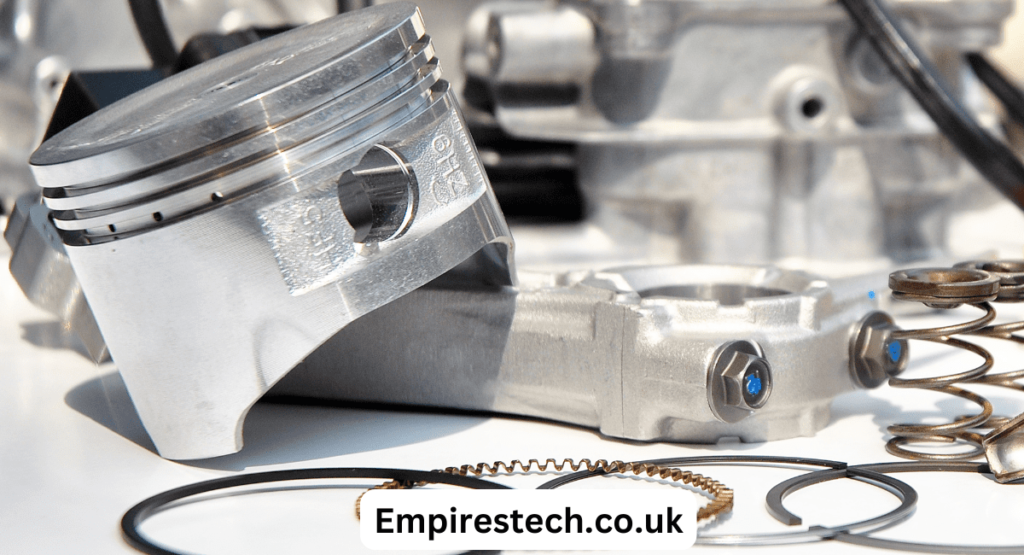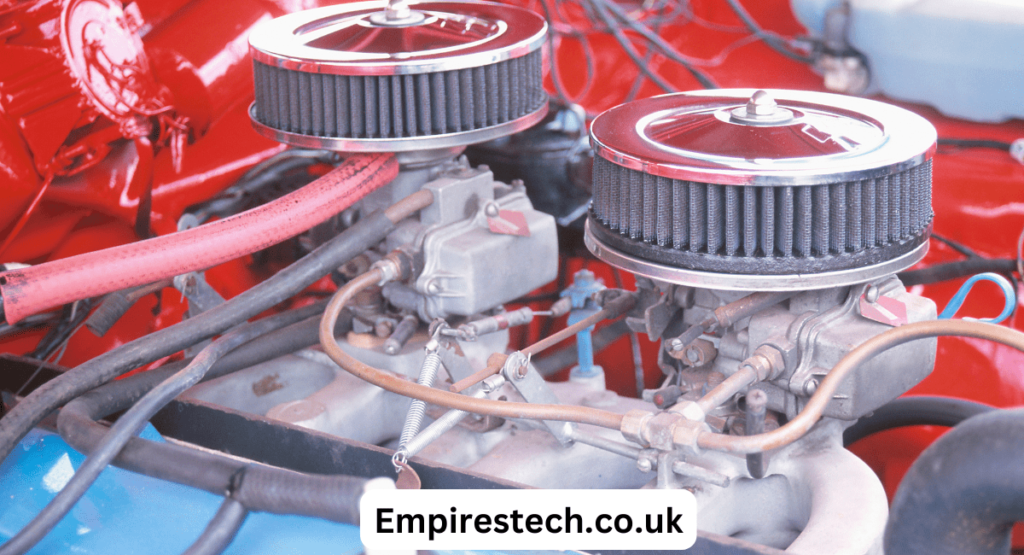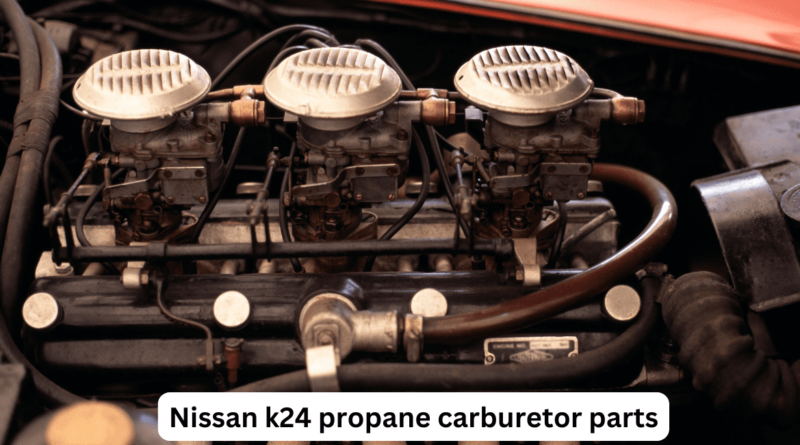Nissan K24 Propane Carburetor Parts: The Complete Guide
Introduction
In the world of automotive enthusiasts and professionals, engine customization and fuel optimization are crucial aspects of vehicle performance. One of the most popular engines for customization is the Nissan K24, a workhorse known for its reliability and performance. When it comes to alternative fuel systems, propane has gained popularity due to its environmental benefits and cost-effectiveness. This article delves into the intricacies of the Nissan K24 propane carburetor parts, offering a comprehensive guide to help you understand the components, their functions, and how to optimize your engine’s performance using these parts.
What is a Propane Carburetor?
Before diving into the specifics of Nissan K24 propane carburetor parts, it’s essential to understand what a propane carburetor is and why it’s used. A propane carburetor is a device that mixes propane with air to create a combustible mixture for internal combustion engines. Propane is a cleaner-burning fuel compared to gasoline, producing fewer emissions and extending engine life. It’s also more stable, reducing the risk of fuel-related issues.
The Nissan K24 Engine: An Overview
The Nissan K24 engine is part of the Nissan K series of engines, which are known for their robust construction and versatility. Originally designed for Nissan’s commercial vehicles, the K24 engine has become a favorite among car enthusiasts for its adaptability and performance potential. The engine’s 2.4-liter displacement, combined with its ability to be tuned and modified, makes it an ideal candidate for alternative fuel systems like propane.
Why Convert the Nissan K24 to Propane?
Converting a Nissan K24 engine to run on propane offers several benefits:
- Environmental Benefits: Propane is a cleaner fuel, emitting fewer greenhouse gases and pollutants compared to gasoline.
- Cost Savings: Propane is often cheaper than gasoline, leading to long-term savings on fuel costs.
- Engine Longevity: Propane burns cleaner, reducing carbon buildup in the engine, which can extend the life of the engine.
- Performance: With the right modifications, propane can offer comparable, if not better, performance than gasoline.
Key Nissan K24 Propane Carburetor Parts
When converting a Nissan K24 engine to run on propane, several specific parts are essential for the conversion process. Understanding each part’s role is crucial to ensuring a successful conversion and optimal engine performance.
1. Propane Carburetor
The propane carburetor is the heart of the conversion process. It mixes propane with air to create a combustible mixture for the engine. For the nissan k24 propane carburetor parts, it’s vital to choose a carburetor that is compatible with the engine’s specifications. The carburetor must be able to handle the engine’s air and fuel demands, ensuring efficient combustion and performance.
2. Propane Fuel Regulator
The propane fuel regulator is responsible for controlling the pressure of the propane as it enters the carburetor. This is crucial because propane is stored under high pressure and must be reduced to a safe and manageable level before it can be used in the engine. A good regulator will ensure consistent fuel delivery, preventing issues like backfiring or stalling.
3. Propane Fuel Tank
The fuel tank stores the propane used by the engine. For the Nissan K24, it’s essential to select a tank that fits well within the vehicle’s space constraints while providing adequate fuel capacity for your needs. The tank must also be compatible with the regulator and carburetor to ensure seamless operation.
4. Mixer
The mixer is a component that blends the propane with air before it enters the carburetor. It’s a crucial part of the conversion process as it ensures that the air-fuel mixture is at the correct ratio for optimal combustion. For the Nissan K24 engine, the mixer must be chosen carefully to match the engine’s air intake system.
5. Vaporizer
The vaporizer, also known as a converter, turns the liquid propane from the fuel tank into a vapor that can be mixed with air in the carburetor. This process is essential because the engine can only combust propane in its gaseous form. The vaporizer must be compatible with the Nissan K24’s engine temperature and coolant system to function correctly.
6. Carburetor Adapter Plate
The carburetor adapter plate is used to mount the propane carburetor to the engine. It ensures that the carburetor is correctly aligned with the intake manifold, allowing for smooth and efficient air and fuel flow. The adapter plate must be specific to the Nissan K24 engine to ensure a proper fit.
7. Throttle Body
The throttle body controls the amount of air that enters the engine, which in turn controls the engine’s speed and power output. When converting to propane, the throttle body must be compatible with the propane carburetor to ensure smooth operation and optimal performance.
Installing Nissan K24 Propane Carburetor Parts

Installing propane carburetor parts on a Nissan K24 engine requires a thorough understanding of the engine’s mechanics and the propane fuel system. Below is a step-by-step guide to help you through the installation process.
Gather All Necessary Parts and Tools
Before starting the installation, ensure that you have all the necessary parts, including the propane carburetor, fuel regulator, mixer, vaporizer, adapter plate, and throttle body. You’ll also need tools such as wrenches, screwdrivers, and a torque wrench.
Remove the Existing Carburetor
Begin by disconnecting the battery to avoid any electrical issues during the installation. Next, remove the existing carburetor from the engine by disconnecting the fuel lines, throttle linkage, and mounting bolts.
Install the Adapter Plate
Once the old carburetor is removed, install the adapter plate onto the engine’s intake manifold. Ensure that the plate is correctly aligned and securely fastened using the appropriate bolts and gaskets.
Mount the Propane Carburetor
With the adapter plate in place, mount the propane carburetor onto the plate. Ensure that it is securely fastened and aligned with the intake manifold to allow for smooth air and fuel flow.
Install the Fuel Regulator and Vaporizer
Next, install the propane fuel regulator and vaporizer in a location that is easily accessible and away from high-heat areas. Connect the regulator to the propane fuel tank and the vaporizer to the engine’s coolant system. Ensure that all connections are secure and free of leaks.
Connect the Mixer and Throttle Body
Install the mixer and throttle body, ensuring that they are compatible with the propane carburetor and the Nissan K24 engine’s air intake system. Connect the throttle linkage and adjust it to ensure smooth operation.
Test the System
After all components are installed, reconnect the battery and test the system. Adjust the carburetor and fuel regulator as needed to achieve optimal performance.
Tuning the Nissan K24 Propane Carburetor
Once the propane conversion is complete, tuning the carburetor is essential to ensure that the engine runs smoothly and efficiently. Proper tuning can enhance performance, fuel efficiency, and engine longevity.
Adjusting the Air-Fuel Mixture
The air-fuel mixture must be adjusted to ensure that the engine is receiving the correct ratio of propane to air. This can be done using the carburetor’s adjustment screws. Start by setting the mixture to the manufacturer’s recommended settings, then fine-tune it based on the engine’s performance.
Idle Speed Adjustment
Adjust the idle speed to ensure that the engine runs smoothly at low speeds. This is particularly important for the Nissan K24 engine, as improper idle settings can lead to stalling or rough idling.
Ignition Timing
Ignition timing is crucial for propane engines, as it affects combustion efficiency and performance. Adjust the timing to ensure that the spark occurs at the optimal moment for propane combustion. This may require using a timing light and adjusting the distributor or ignition system.
Fuel Pressure Adjustment
The fuel pressure regulator must be set to the correct pressure to ensure consistent fuel delivery to the carburetor. Adjust the regulator based on the engine’s performance and the manufacturer’s recommendations.
Maintenance Tips for Nissan K24 Propane Carburetor Parts
Proper maintenance is essential to keep your Nissan K24 propane system running smoothly and efficiently. Here are some tips to help you maintain the system:
1. Regularly Check for Leaks
Propane is a highly flammable fuel, so it’s crucial to regularly check for leaks in the fuel lines, regulator, and carburetor. Use a propane leak detector or soapy water to check for leaks and repair any issues immediately.
2. Clean the Carburetor
Over time, the carburetor may become clogged with dirt and debris, affecting performance. Regularly clean the carburetor and its components to ensure smooth operation.
3. Inspect the Fuel Tank
Inspect the propane fuel tank for any signs of damage or wear. Ensure that the tank is securely mounted and that all connections are tight and free of leaks.
4. Monitor Engine Performance
Keep an eye on the engine’s performance and make any necessary adjustments to the carburetor, regulator, or timing. Regular tuning can help maintain optimal performance and fuel efficiency.
5. Replace Worn Components
Over time, components like the fuel regulator, vaporizer, and throttle body may wear out and need replacement. Regularly inspect these parts and replace them as needed to avoid performance issues.
Common Issues with Nissan K24 Propane Carburetor Conversions

Converting a Nissan K24 engine to run on propane can be a rewarding project, but it’s not without its challenges. Here are some common issues that you may encounter during the conversion process:
1. Backfiring
Backfiring can occur if the air-fuel mixture is too lean or if the ignition timing is off. Adjusting the carburetor and ignition timing can help resolve this issue.
2. Hard Starting
Hard starting can be caused by a variety of issues, including incorrect fuel pressure, a clogged carburetor, or a weak ignition system.
3. Stalling
Stalling can occur if the idle speed is set too low or if there are issues with the fuel delivery system. Adjust the idle speed and check the fuel regulator and carburetor for any issues.
4. Poor Fuel Efficiency
Poor fuel efficiency can result from an improperly tuned carburetor or issues with the fuel regulator. Regular tuning and maintenance can help improve fuel efficiency.
5. Rough Idling
Rough idling can be caused by an improper air-fuel mixture or issues with the throttle body. Adjust the carburetor and throttle body to ensure smooth idling.
Advantages of Using Propane in Nissan K24 Engines
Propane offers several advantages when used in Nissan K24 engines, making it a viable alternative to gasoline.
1. Environmental Benefits
This makes it a more environmentally friendly option, reducing the vehicle’s carbon footprint.
2. Cost Savings
Propane is often cheaper than gasoline, leading to long-term savings on fuel costs. Additionally, propane’s clean-burning properties can reduce maintenance costs by preventing carbon buildup in the engine.
3. Engine Longevity
Propane burns cleaner, reducing carbon deposits and sludge buildup in the engine. This can extend the engine’s life and reduce the need for costly repairs.
4. Performance
With the right modifications and tuning, propane can offer comparable, if not better, performance than gasoline. Propane engines can produce similar power and torque while running more efficiently.
5. Fuel Stability
Propane is a more stable fuel compared to gasoline, reducing the risk of fuel-related issues such as vapor lock or fuel degradation.
FAQs about Nissan K24 Propane Carburetor Parts
onHere are five unique FAQs to help you understand more about Nissan K24 propane carburetor parts:
1. Can I convert my Nissan K24 engine back to gasoline after converting it to propane? Yes, it is possible to convert a Nissan K24 engine back to gasoline after converting it to propane. However, it requires removing the propane components and reinstalling the original gasoline components, such as the carburetor, fuel lines, and tank.
2. How does propane affect the power output of a Nissan K24 engine? Propane can provide similar or even slightly improved power output compared to gasoline, depending on the tuning and modifications made to the engine. Properly tuned propane systems can achieve comparable torque and horsepower.
3. Is it legal to convert my Nissan K24 engine to propane? In most regions, it is legal to convert a vehicle to run on propane, but it’s essential to check local regulations and ensure that the conversion meets all safety and emissions standards.
4. What is the average cost of converting a Nissan K24 engine to propane? The cost of converting a Nissan K24 engine to propane can vary depending on the quality of the components used and the complexity of the installation. On average, the conversion can range from $1,500 to $3,000.
5. Can I install Nissan K24 propane carburetor parts myself, or do I need a professional? While it is possible to install Nissan K24 propane carburetor parts yourself, it requires a good understanding of automotive mechanics and propane fuel systems. If you’re not confident in your abilities, it’s recommended to have a professional perform the installation to ensure safety and proper operati.
Conclusion
Converting your Nissan K24 engine to run on propane is a practical and environmentally friendly way to enhance your vehicle’s performance. By understanding the key Nissan K24 propane carburetor parts and their functions, you can ensure a successful conversion and enjoy the many benefits that propane has to offer. Whether you’re looking to save on fuel costs, reduce emissions, or extend your engine’s life, a propane conversion is a worthwhile investment. With proper installation, tuning, and maintenance, your Nissan K24 engine can deliver reliable and efficient performance for years to come.

